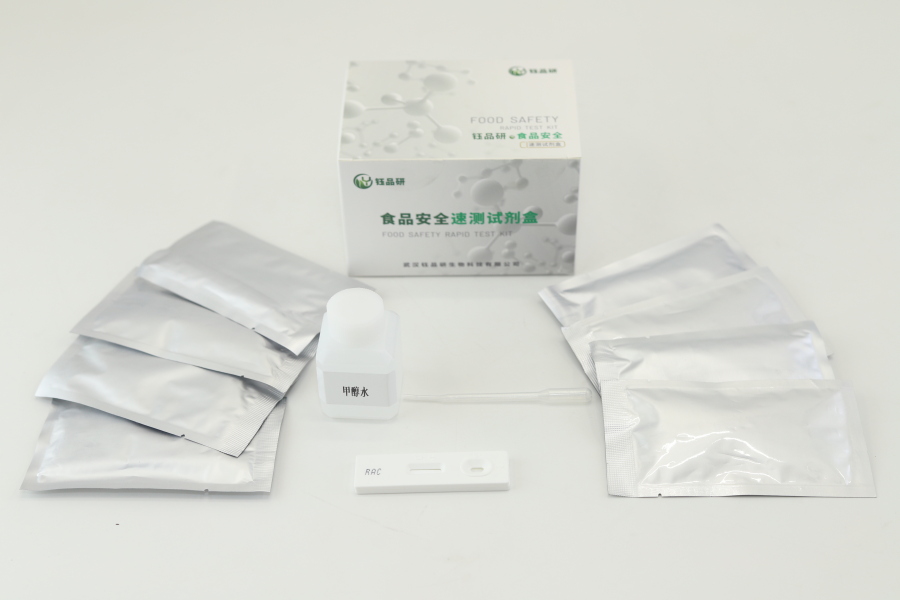In the field of agricultural production and food processing, pesticide residues are one of the important factors affecting food safety. Among them, pendimethalin, as a widely used selective herbicide, may pose a potential threat to human health if the residue exceeds the standard in agricultural products. In order to quickly and accurately detect pendimethalin residues in food, the pendimethalin colloidal gold rapid detection card came into being and has become an important tool in the food safety detection process.
So, what exactly is the pendimethalin colloidal gold rapid detection card? In short, it is a rapid detection product based on colloidal gold immunochromatography technology. Its core principle is to use the specific antibody of pendimethalin labeled with colloidal gold to generate an immune reaction with the pendimethalin antigen that may exist in the sample. When the sample is dropped into the detection card and the sample well is added, it moves in the direction of chromatography under capillary action. If the sample contains dimethylpenyl, it will combine with the colloidal gold-labeled antibody to form a complex. When it continues to move to the detection line (T-line), the complex is captured by the fixed dimethylpenyl antigen, so as to develop color on the T-line; the quality control line (C-line) is used to verify whether the detection process is carried out normally and ensure the reliability of the results.
The main use of this detection card is to quickly screen dimethylpenyl residues in food, including vegetables, fruits, grains and other agricultural products. Compared with traditional detection methods (such as high-performance liquid chromatography, gas chromatography, etc.), it has significant advantages: first, the detection speed is fast, usually 10-15 minutes to read the results, without the need for complex pretreatment and professional instruments; second, the operation is simple, the user only needs to add the sample dropwise according to the instructions, add the sample buffer, and observe the color development results, which can be quickly grasped by non-professionals; third, the sensitivity is high, it can reach the detection limit of ng/mL level, and can accurately identify low-concentration residues; fourth, it is portable and compact, suitable for on-site detection (such as market and field rapid sampling), providing immediate decision-making support for regulatory authorities and enterprises.
In practical applications, the dimethylpentyl colloidal gold rapid detection card can be widely used in agricultural production for pesticide use guidance, raw material acceptance of food processing enterprises, rapid screening by market supervision departments, and food safety checks in the catering industry. By finding the problem of excessive residues in advance, it can effectively reduce the risk of food safety and ensure the safety of consumers' diets.
In short, dimethylpentyl colloidal gold rapid detection card with its fast, simple and sensitive characteristics, plays an important role in the field of food safety testing, and is a powerful tool to achieve rapid screening of pesticide residues and protect public health.


